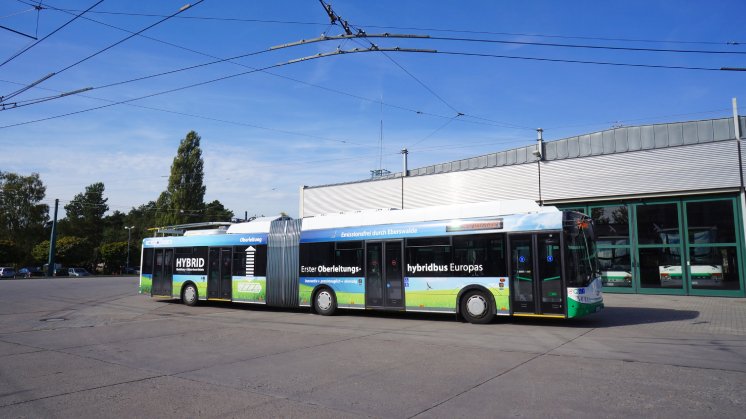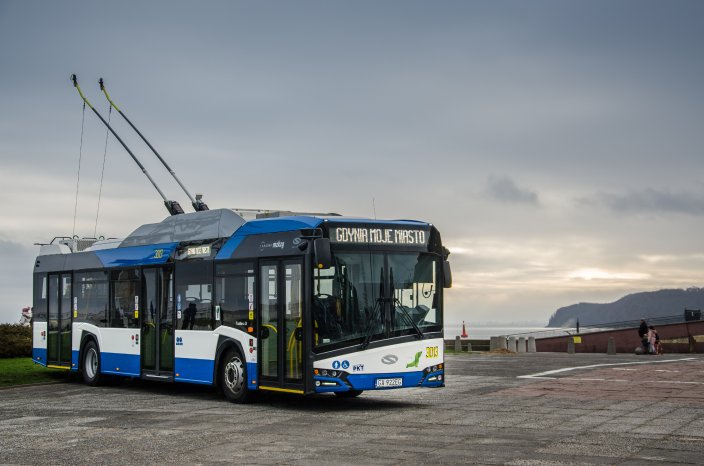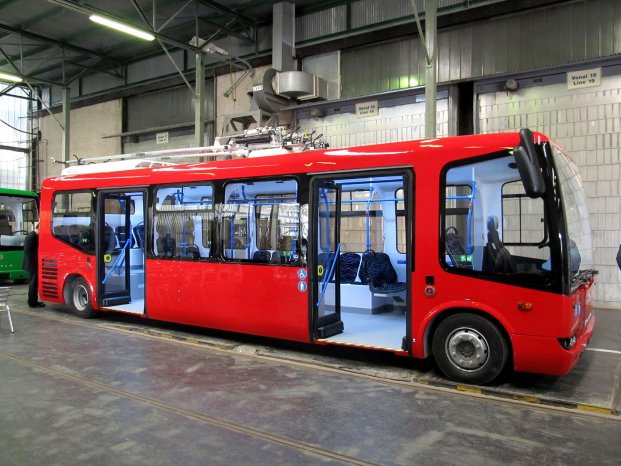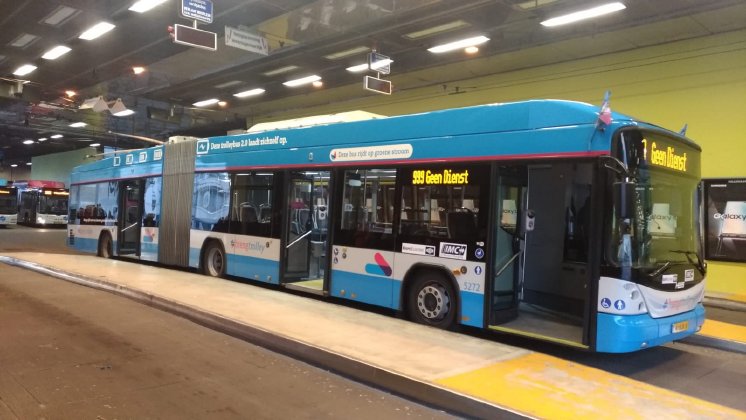The project investigates in-motion loading concepts
Trolleybus-systems are a modern and emission-free alternative to diesel buses in urban public transport. However, the associated infrastructure costs are still very high compared to standard diesel bus lines, which makes the systems economically profitable only to a limited extent, but systems show a very good environmental performance. By implementing battery systems in trolleybuses, however, a partial independence from the overhead line can be achieved, which means greater economic efficiency and a step forward towards more electric public transport systems in European cities.
The trolley:2.0 project addresses this issue and, in this context, looks in particular at in-motion charging concepts for trolley-battery-buses. In-Motion charging concepts are able to charge the battery during operation under the overhead contact line and thus pass through overhead contact line gaps in city centres or urban areas respectively.
Within the framework of the project, nine partners from public transport, industry and research will demonstrate this new in-motion charging approach in the three EME Europe partner country cities Eberswalde (DE), Szeged (HU) and Gdynia (PL). In addition, the Dutch partners work together with the associated partner city of Arnhem (NL) on "smart trolley grid" solutions.
Project delayed, but on schedule
Predefined objectives of the project are:
- Improvement of the efficiency of public transport by trolley-battery-buses without the need to expand overhead line networks.
- Improving the acceptance of trolleybuses due to the ability to overcome gaps in overhead contact lines in architecturally critical areas.
- Contribution to an improved and more valid assessment basis for the economic efficiency of in-motion charging concepts with trolley-battery-buses.
- Possibility of charging trolleybuses and other electric vehicles by means of an intelligent overhead line network.
- Demonstration of trolley-battery-buses as the right solution for the expansion of trolleybus networks and the replacement of diesel bus lines in remote areas.
- Illustration of the ability to overcome gaps in the overhead contact line by automated wiring of trolleybuses.
- Development of concepts for the use of synergies of both tram and trolleybus systems.
- Development of scalable battery packages for trolleybuses and concepts for the use of 2nd life batteries as stationary energy storage systems.
- Investigation of insulation aspects of alternative trolleybus frames.
- Investigation and demonstration of the potential of catenary networks as urban DC backbone for charging electric vehicles and integrating renewable energy sources (RES).
- Development of methods and models for the evaluation and design of trolley-battery-buses and in-motion charging concepts.
- Development of best practice examples and guidelines as well as recommendations on how to make trolley networks "smart”.
trolley:2.0 also initiated a User Forum and held its first meeting at the 6th International E-Bus Conference in Solingen. With the User Forum, the dissemination of knowledge is to be guaranteed and the attention of cities that want to expand their trolleybus network or even build a new one is to be strengthened. For the user forum the following cities and/or enterprises could be won: Salzburg AG, (AT), Stadwerke Solingen, (DE), BKV Budapest (HU), MPK Lublin and PKT Gdynia (PL), Hordaland AG, (NO), Municipality of Maribor (SLO)
Berliner Verkehrsbetriebe (BVG), (DE), OSY S.A. Athens, (GR), Pilsen City Transport Company (CZ), TPER SpA, Bologna (IT), Verkehrsverbund Klagenfurt, (AT), Verkehrsbetrieb Zürich (CH), Marburger Verkehrsgesellschaft, (DE)
Overall, the majority of the project’s activities planned within the first year have already been realised. A slow project start due to administrative conditions and minor problems in the development or completion of test components caused delays. Nevertheless, the trolley:2.0 project is on target and shows that trolleybus systems can play an important role in the electric public transport of the future.
The latest news on the project can be found at https://www.trolleymotion.eu/trolley2-0/
Abstract trolley:motion:
Modern urban development and the safeguarding of urban mobility are two important challenges today for sustainably maintaining the quality of life in urban areas. Intelligent and modern public transport systems guarantee the fundamental right to mobility while at the same time minimising negative environmental influences such as pollutants, noise or the consumption of urban habitats.
The trolleybus system is a proven and future-proof electric drive technology for overcoming these challenges. It offers the same urban development benefits as the rail-bound metro and tram systems, but can respond much more quickly and flexibly to urban growth.




